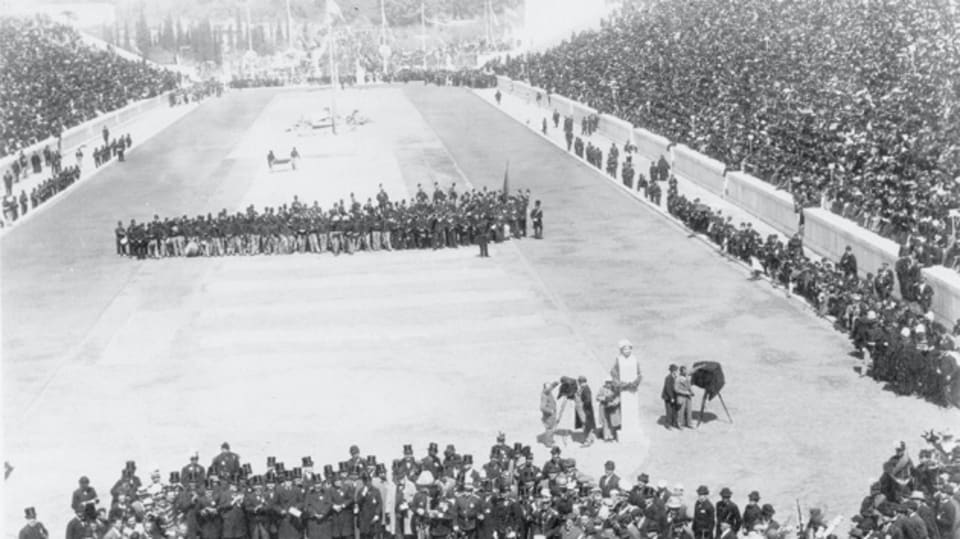The Opening Ceremony
On 6 April 1896, Easter Monday, the streets of Athens were even more animated than usual. All of the public buildings were draped in bunting, while multi-coloured streamers floated in the wind and green wreaths decked many of the house fronts. Everywhere one looked, one saw the letters “0. A.” (the Greek initials of the Olympic Games) and the dates “BC 776, AD 1896”, indicating the first year of the ancient Games and the first year of their modern reincarnation.

At two o'clock in the afternoon the 60,000-strong crowd began to make their way the Panathenaic Stadium, the venue for the Opening Ceremony and the track and field programme. Originally built in 330BC, the stadium had been excavated several decades earlier but was then abandoned in a state of disrepair. However, thanks in large measure to the financial support of Georgios Averoff, a wealthy Egyptian Greek, it was magnificently restored with white marble.
All in all over 300 athletes – all of them male – converged on Athens to compete in 43 events covering nine different sports and representing 13 countries. Over two thirds of those competing came from the host country Greece, with the second largest contingents coming from Germany and France, each of whom sent 19 athletes, followed by the USA, who sent a 14-strong team. Many of those who had come to take part endured, long and often uncomfortable journeys over land and sea to reach Athens, some arriving just in time to compete.
Men in traditional Greek attire mingled with Europeans in suits. The women used large paper fans to shield them from the sun, parasols, which would have obstructed the view, being prohibited. Shortly before 3pm, the Greek king and queen arrived, and were formally welcomed by the crown prince and his brothers, the president of the Greek Council of Ministers, and by the members of the Hellenic Committee and the International Olympic Committee. The crown prince made a short speech, in which he touched upon the origin of the enterprise, and the obstacles surmounted in bringing it to fruition. After a short speech, the crown prince asked the King to proclaim the opening of the Olympic Games and an Olympic hymn, written specially for the occasion by the Greek composer Spyridon Samaras, was then sung by a 150-strong choir.
“The success of the festival is now assured,” enthused the correspondent of The Times in his dispatch for the following day’s edition of the newspaper. “The Parthenon is more beautiful than the Eiffel Tower, more interesting than the Gigantic Wheel; the Acropolis could hardly be improved by a tasteful arrangement of bunting, and the starlit sky of Attica may dispense with showers of variegated rockets. If novelty be required, the renovation of the Panathenaic Stadion furnishes an object of interest that is at the same time new and old.”
